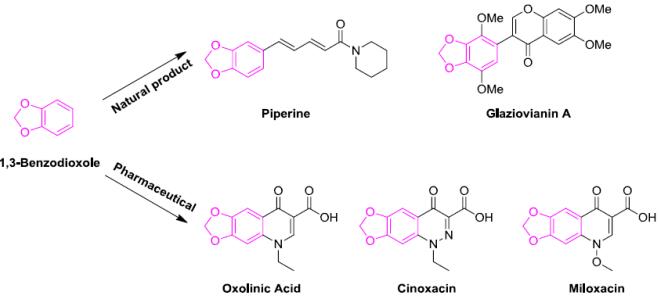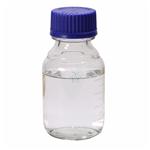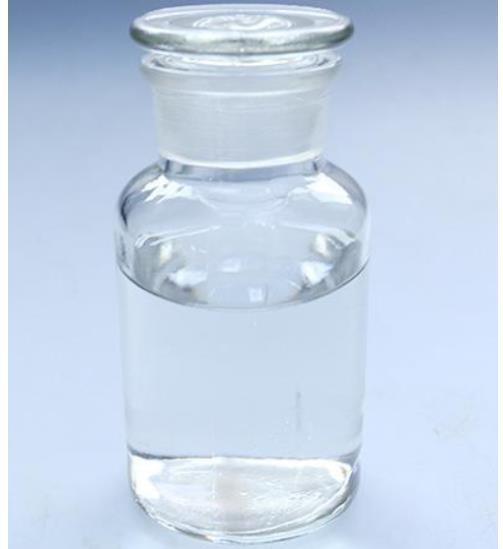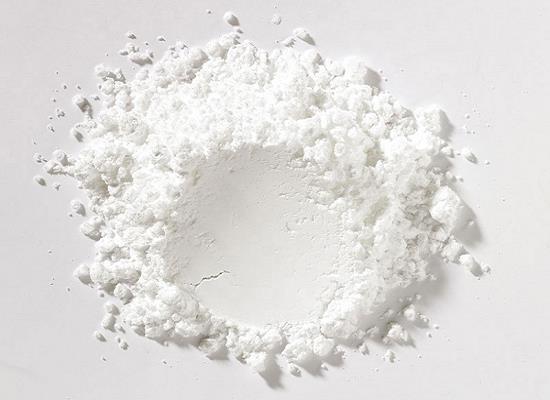What is 1,3-Benzodioxole?
Feb 12,2020
1,3-Benzodioxole, widely found in plant products, has shown potent antioxidant and antibacterial activities. It has recently been reported that 1,3-benzodioxole derivatives possess cytotoxic activity against several human tumor cell lines, including human colon carcinoma cells and multidrug-resistant nasopharyngeal carcinoma cells. No cytotoxic effects were noticed at a concentration of 10-4 M. Furthermore, it has been found in previous research that a hydrogen abstraction process can take place from the methylene-bridge carbon of the benzodioxole compound and form a methylenedioxybenzene radical. It is therefore highly likely that 1,3-benzodioxole could serve as hydrogen donor for a CQ-based system initiating the photopolymerization of dental composite resin.
In addition, 1,3-benzodioxole is an important organic intermediate (building block) to synthetize substituted methylenedioxybenzene products.


Song et al. reported [1] its application on the synthesis of γ-lactam derivatives containing 1,3-benzodioxole unit as potential anti-phytopathogenic fungus agents. These derivatives were synthesized from the lead compound of lactam via a structural diversity-oriented synthesis. Their antifungal activities were evaluated against four serious and typically crop-threatening agricultural fungi, including Rhizoctonia solani, Alternaria tenuis Nees, Gloeosporium theae-sinensis, and Fusarium graminearum. Some of these derivatives exhibited activity against Alternaria tenuis Nees higher than that of commercial fungicides carbendazim. Compared with the blank control, some of these derivatives showed good antifungal activities against Gloeosporium theae-sinensis and Fusarium graminearum.
Liu et al. reported [2] its application on the coinitiator for dental resin. It has been found that 1,3-benzodioxole as coinitiator improved the rate of polymerization and final double bond conversion of the dental resin. The cured samples showed similar properties, e.g. modulus, glass transition temperature, water sorption and solubility. Conclusion. The results indicate that 1,3-benzodioxole is a viable alternative to conventional amines as coinitiator. The biocompatibility of 1,3-benzodioxole makes it more promising than amine in dental resin formulations.

Wessig et al. reported [3] its application on the synthesis of a new class of fluorescent dyes, which are characterized by large Stokes-shifts, long fluorescence lifetimes in organic solvents, a pronounced dependency of the fluorescence lifetime on the solvent polarity and high bleaching stability.
References
1.Song D. et al. Discovery of γ-lactam derivatives containing 1,3-benzodioxole unit as potential anti-phytopathogenic fungus agents[J]. Bioorganic & Medicinal Chemistry Letters, 2020, 30:126826
2.Liu S. et al. Benzodioxole derivative as coinitiator for dental resin[J]. Acta Odontologica Scandinavica, 2007, 65: 313-318
Wessig P. et al. A new class of fluorescent dyes based on 1,3-benzodioxole and [1,3]-dioxolo[4.5-f]benzodioxole[J]. Tetrahedron Letters, 2011, 52:6192–6195
You may like
Related articles And Qustion
Lastest Price from 1,3-Benzodioxole manufacturers
1,3-Benzodioxole

US $1.00/KG2025-04-21
- CAS:
- 274-09-9
- Min. Order:
- 1KG
- Purity:
- 99%
- Supply Ability:
- 10 mt
1,3-Benzodioxole

US $0.00-0.00/KG2025-04-15
- CAS:
- 274-09-9
- Min. Order:
- 1KG
- Purity:
- 99%
- Supply Ability:
- 500000kg




